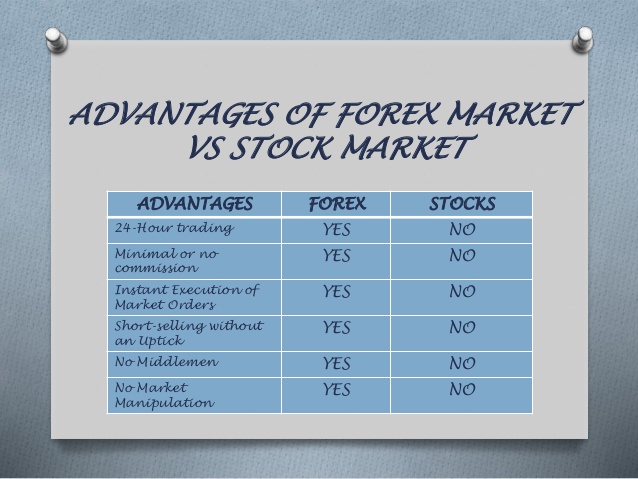
Start small with low leverage and a small amount. Then, increase the money as your profits begin to pile up. Although larger accounts can be more profitable, they don't always yield higher profits. Start small, focus on one currency pair and expand your trading abilities as you improve. In the early days of forex trading, it is a good idea to focus on a single currency pair, and increase your leverage as your profits grow.
Avoid following the markets
When trading forex, you need to have an exit plan in place. Inexperienced traders make the common mistake of trying to chase the market. It is a common cause to impatience, poor capitalization, and inefficiency. This common mistake can be fixed with automation. Before automating your trading, it is important to learn how not to chase the market. These tips will help you avoid chasing after the market.
Avoid trading based solely on your emotions
Avoiding emotions can help you avoid making costly mistakes in trading. Emotions are a biological action potential and are a way for us to respond to changes in our environment. When a trader is overly stressed, emotions can take control of his or her mind. Instead of profiting, traders who are stressed out make poor trade decisions that end up costing them their money. This can be avoided by traders making conscious decisions to avoid emotional consequences.

Avoid overtrading
One of the most important tips in trading is to avoid overtrading. Overtrading may be a mistake traders make, and it can cost them a lot of money. Overtrading can lead to poor trade selection and high commissions. There are several ways to avoid excessive trading. Read on for some ideas to help you stop trading in overdrive. In the meantime, keep your trading account balance low and plan ahead.
Avoid trading with the trend
Trading with the trend requires that you understand the characteristics of the trend in order to trade according to them. To avoid surprises at the end of a trend, you can use indicators-based trading strategies. In this article, I will discuss the importance of following price signals and trendlines in trading. This is the best way to make your trading strategy successful and avoid making costly mistakes.
Avoid trading with exotic pair
Forex trading is not easy if you're not well versed in the market. Avoid trading with more exotic pairs that you are not able to handle, like the Japanese yen and Chinese Yuan. The risk of losing a big trade can wipe out your entire account. A large stop loss distance should be established. Trades that are profitable can be wiped out by price swings.
Avoid trading on volatility contraction
The idea of volatility contraction is powerful. It might have worked out of the box just a few decades ago. But computing has revolutionized the game. Volatility cycles can be used to signal trades and are an integral part of market behavior. Learn to trade with a range of volatility in order not to fall into this trap. It will help you win trades. Below are some examples to illustrate how volatility can be used.

Avoid trading with volatility expansion
Trading with volatility expansion is the best way to avoid losing consecutive trades. This strategy involves limiting the time frame to an intraday. Tradeable swings can be found within 15- and 60-minute time frames. This strategy was pioneered by international economist Barbara Rockefeller, who specialized in foreign exchange. Her daily reports combined both technical and fundamental analysis. Traders should look for signals such as this.
FAQ
What are the benefits of stock ownership?
Stocks are less volatile than bonds. If a company goes under, its shares' value will drop dramatically.
However, share prices will rise if a company is growing.
To raise capital, companies often issue new shares. This allows investors to buy more shares in the company.
To borrow money, companies use debt financing. This allows them to borrow money cheaply, which allows them more growth.
When a company has a good product, then people tend to buy it. The stock price rises as the demand for it increases.
Stock prices should rise as long as the company produces products people want.
How do I choose an investment company that is good?
It is important to find one that charges low fees, provides high-quality administration, and offers a diverse portfolio. The type of security that is held in your account usually determines the fee. Some companies have no charges for holding cash. Others charge a flat fee each year, regardless how much you deposit. Others charge a percentage based on your total assets.
You should also find out what kind of performance history they have. If a company has a poor track record, it may not be the right fit for your needs. Companies with low net asset values (NAVs) or extremely volatile NAVs should be avoided.
You should also check their investment philosophy. An investment company should be willing to take risks in order to achieve higher returns. If they aren't willing to take risk, they may not meet your expectations.
How do people lose money on the stock market?
The stock exchange is not a place you can make money selling high and buying cheap. It's a place where you lose money by buying high and selling low.
The stock market is for those who are willing to take chances. They are willing to sell stocks when they believe they are too expensive and buy stocks at a price they don't think is fair.
They believe they will gain from the market's volatility. But if they don't watch out, they could lose all their money.
Who can trade in stock markets?
Everyone. All people are not equal in this universe. Some people have better skills or knowledge than others. They should be recognized for their efforts.
However, there are other factors that can determine whether or not a person succeeds in trading stocks. You won't be able make any decisions based upon financial reports if you don’t know how to read them.
These reports are not for you unless you know how to interpret them. It is important to understand the meaning of each number. And you must be able to interpret the numbers correctly.
This will allow you to identify trends and patterns in data. This will enable you to make informed decisions about when to purchase and sell shares.
And if you're lucky enough, you might become rich from doing this.
How does the stockmarket work?
By buying shares of stock, you're purchasing ownership rights in a part of the company. The company has some rights that a shareholder can exercise. He/she can vote on major policies and resolutions. He/she has the right to demand payment for any damages done by the company. And he/she can sue the company for breach of contract.
A company can't issue more shares than the total assets and liabilities it has. This is called "capital adequacy."
A company with a high capital adequacy ratio is considered safe. Companies with low ratios of capital adequacy are more risky.
Statistics
- The S&P 500 has grown about 10.5% per year since its establishment in the 1920s. (investopedia.com)
- Ratchet down that 10% if you don't yet have a healthy emergency fund and 10% to 15% of your income funneled into a retirement savings account. (nerdwallet.com)
- "If all of your money's in one stock, you could potentially lose 50% of it overnight," Moore says. (nerdwallet.com)
- Even if you find talent for trading stocks, allocating more than 10% of your portfolio to an individual stock can expose your savings to too much volatility. (nerdwallet.com)
External Links
How To
How to make a trading program
A trading plan helps you manage your money effectively. It helps you identify your financial goals and how much you have.
Before you create a trading program, consider your goals. You might want to save money, earn income, or spend less. If you're saving money you might choose to invest in bonds and shares. You can save interest by buying a house or opening a savings account. You might also want to save money by going on vacation or buying yourself something nice.
Once you have a clear idea of what you want with your money, it's time to determine how much you need to start. This depends on where your home is and whether you have loans or other debts. Also, consider how much money you make each month (or week). Your income is the amount you earn after taxes.
Next, you need to make sure that you have enough money to cover your expenses. These include bills, rent, food, travel costs, and anything else you need to pay. These all add up to your monthly expense.
You will need to calculate how much money you have left at the end each month. This is your net disposable income.
Now you know how to best use your money.
Download one from the internet and you can get started with a simple trading plan. You can also ask an expert in investing to help you build one.
For example, here's a simple spreadsheet you can open in Microsoft Excel.
This will show all of your income and expenses so far. Notice that it includes your current bank balance and investment portfolio.
And here's another example. This one was designed by a financial planner.
It will help you calculate how much risk you can afford.
Don't try and predict the future. Instead, be focused on today's money management.